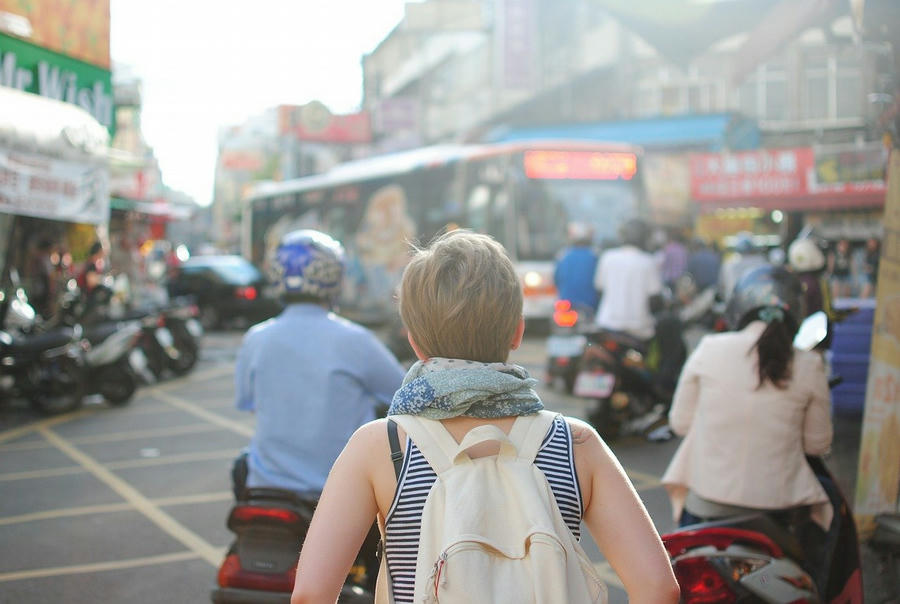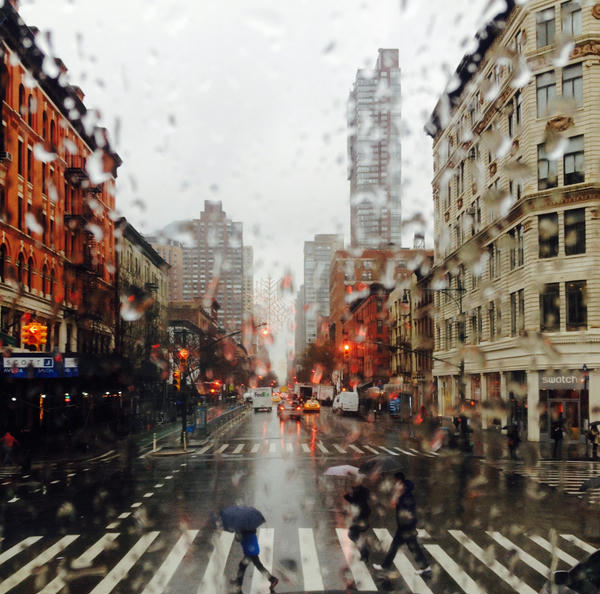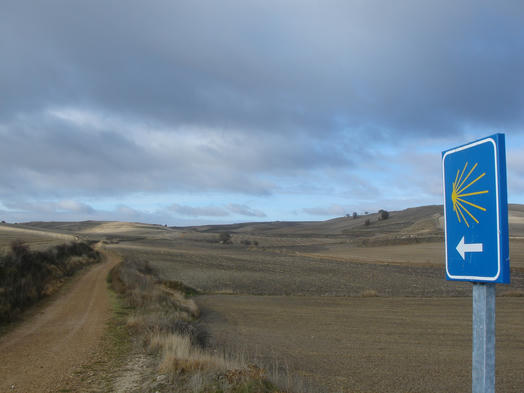When a woman has a great desire to travel and wants to travel alone, safety is an important issue - actually it’s the most important one. This is because if an unforeseeable incident occurs, it can not only endanger the journey but also the integrity of the trip. Travelling alone as a woman also means being exposed to various risks and dangers alone and without help.

Risks women face when travelling alone depend in part on the destination and how experienced a woman is. For example, a package tour to a safe travel destination carries far less risk than a solo adventure to the Australian outback. There are also general travel risks that can range from losing papers and travel funds to accidents or illness during the trip. Are you planning to travel alone anytime soon? If so, let’s take a look at some measures that you can take to drastically reduce travel risks and significantly increase security.
1. Be prepared for emergencies
When choosing the travel destination or the individual travel stages, you should already be asking basic questions. Is it a safe travel destination or are there travel warnings?
How are women treated in the destination country? What are the hygienic and medical standards in the holiday destination? Which languages do they speak in the travel destination?
2. The right travel insurance
Travel cancellation insurance is always useful. With travel insurance, care should be taken to ensure that full health protection is included and that repatriation from abroad is also included in the travel insurance. If the trip involves doing extreme sports or exposing travelers to particular dangers (e.g. diving, mountaineering, etc.), it may be necessary to take out special travel insurance that guarantees full insurance coverage even in the event of increased risks. This is because travel insurances often exclude certain events from the insurance cover.
3. Emergency addresses in the travel area
Before starting your journey, you should find out all the important addresses and telephone numbers in the area where you will be staying. Relevant details include contact details of doctors, hospitals, embassies, car rentals, room rentals, and possibly people who can be used as emergency contacts. In the case of round trips, these emergency addresses should be compiled for all stages and intermediate stops.
4. The safety net at home
With every trip, friends and relatives at home should be informed in detail before departure about your final destination. Also communicate arrival times at the intermediate stages or stop-overs and when you can be reached, where and how. It is best to write down the complete travel route as precisely as possible and to note all known contact options and emergency contacts in this travel plan. It is also very important to use social media to connect with friends and family at home. In this way, a safety net can be set up that exchanges information with each other in an emergency and gives advice on how you can be helped.
5. Communication during the trip: Always play it safe!
When women travel alone, your mobile phone is one of the most important travel accessories. The smartphone is a valuable help as a navigation device, enables regular communication with family as well as making calls within the travel area. It is best to take two mobile phones and replacement charging cables with you in case something is broken, lost or the mobile phone is stolen. Ideally, both smartphones should be unlocked or open to all networks.
6. Money & important documents: the reserves for emergencies
Luggage can very easily be lost or stolen - and sometimes through no fault of your own. In the worst case scenario, it must be expected that mobile phones, laptops, tablets, cash, credit cards, plane tickets, train tickets, travel documents and notes on important emergency addresses will be lost. In order to prevent this, before you travel, make copies of identity cards, your passport, vaccination cards, travel insurance documents (travel insurance).
Consider allocating small cash reserves to all individual pieces of luggage as well as carrying some cash reserves directly on your body (e.g. in a shoe, bra, neck pouch, trouser pockets etc). It is also essential to build up financial reserves that your family can access at home if financial help from home is required. For example, parents, siblings or friends can transfer money abroad if you’re running out of money or if your travel money has been lost or stolen.
7. Self defense against attacks
From a purely physical point of view, women are usually consider the weaker sex, and therefore, women are particularly at risk when they are travelling alone when it comes to theft, robbery, assault and sexual assault. It may well be extremely helpful to take a self-defense course before travelling. Many gyms and fitness centres provide classes that are specifically targeted to women.
Pepper spray, CS gas, a whistle or even a stun gun are tools that you could consider purchasing. But before you do this, always observe the laws in the destination country and remember that such products may not be taken on board the aircraft for your own protection. In this case, pepper spray, for example, can be bought directly upon arrival at the airport. Always carry it close to your body so that the repellent is right at hand in an emergency. The same goes for the whistle. It can be whistled loudly during a robbery to deter the perpetrator or in an accident to draw attention to yourself. The whistle should be carried in your pocket or on a chain around your neck.
8. Be cautious at all times
Music is a great travel companion, but at least one ear should remain free so that you can still hear what's going on around you. Open drinks and food should never be left out of sight. When possible, always seek protection in a group of people and always have your wits about you.
9. Avoid countries with travel warnings and notorious towns/cities
Basically, dangerous travel areas and vacation destinations with travel warnings should be avoided by women who travel alone. Travel warnings can be found on the Foreign Office website. There you will also find a lot of other useful information about your favorite travel destination as well as tips on what travelers in certain countries should pay attention to. When you arrive at the hotel, it makes sense to ask the staff at reception and in the restaurant which areas you should avoid as a woman.
10. Don't look like a tourist
Try to make every effort not to be recognized as a tourist and to always appear self-confident. Your clothing should therefore be sporty or in the style of the country, your luggage should be packed as lightly as possible and not worn in the typical tourist style. Women who travel alone should also refrain from displaying jewelry. Since handbags are an invitation for pickpockets, you should avoid taking a handbag with you. Wallets in back pockets are also an invitation for thieves. Therefore, always carry money and important documents in the front area and close to your body, even if it’s awkward to get hold of when you need it.
11. Never stand out as a woman who travels alone
Single women are more likely to be attacked and therefore any form of appearance that shows that you are single should strictly be avoided. If you get into a precarious situation, you should always pretend to be on the lookout for your partner or the tour group. Even a fake phone call (for example, “Honey, where are you? I can not see you yet.”) can prevent perpetrators from attacking. Women should always wear a “wedding ring” on a solo trip to give the impression that they are not travelling alone. If you find yourself in a situation where you’d rather not be recognised, grab a pair of sunnies, a hat, or anything else that can help disguise - or hide - your appearance.
12. Security in the accommodation
It goes without saying that your room door should always be locked whether you are present or absent. The windows should also be locked at night if you are staying on the ground level of the property. In addition, the “do not disturb sign” should always be left on the door to prevent hotel staff from entering the room. If possible, the hotel should not give the impression that you are alone in the hotel room - the hotel staff already knows this anyway. Try not to tell other travelers that you are travelling alone. If ever you feel slightly insecure as you leave your hotel room, fake telephone conversations may be a useful tool. For example, you could say “I’m on my way down now” or "See you soon, honey!". Thefts in hotel rooms are not uncommon so bags and cameras can be attached to a fixed object with a bicycle lock. Valuables are best deposited in the hotel safe or not even taken on the trip.
13. Taking taxis
If you do not speak the local language, the address of your hotel or your onward destination should always be written on a piece of paper and can be shown to the taxi driver. During the taxi ride, ensure that your mobile phone location signal is switched on and use Google Maps to follow the route taken by the taxi driver. The taxi license number can be sent to a secure contact at home before boarding if you feel very uncertain. Consider making another pretend call shortly after boarding the vehicle. During the phone call, something should be said like "Yes, I'll be right at your place in 15mins and I’ll meet you outside. Finally, avoid engaging in conversations with the taxi driver that may reveal further information about your travels.
> Contributed post <

